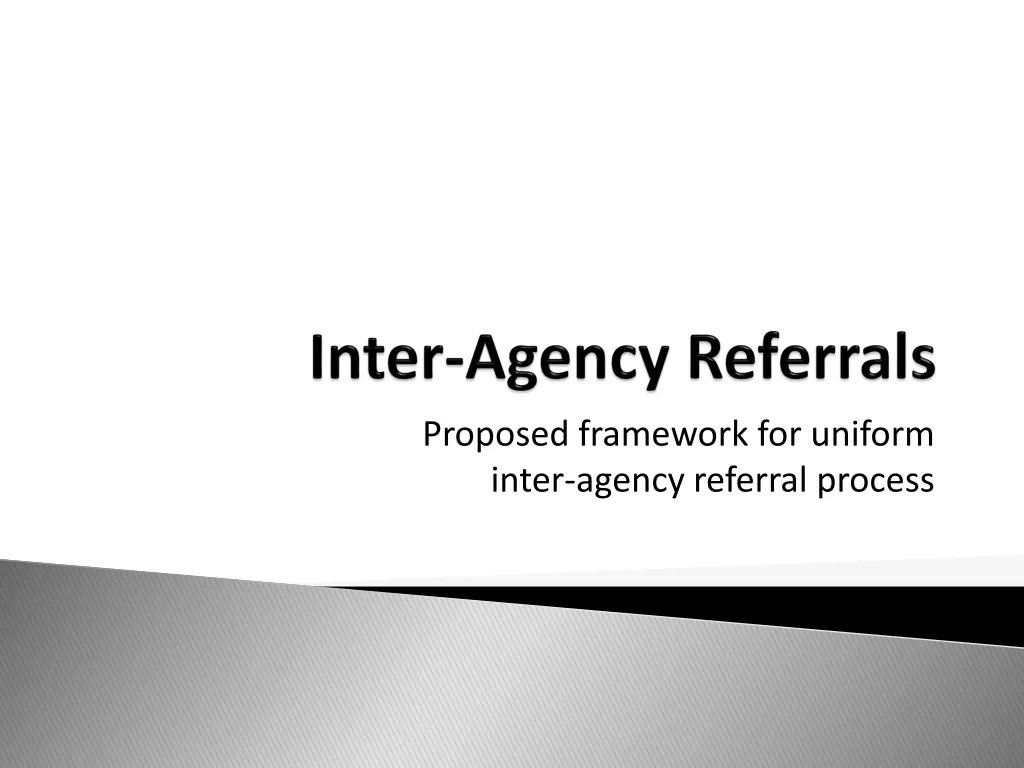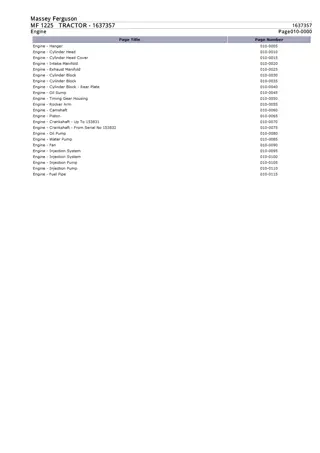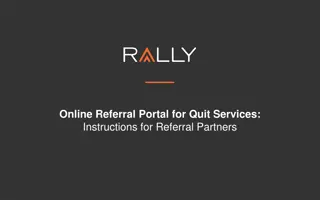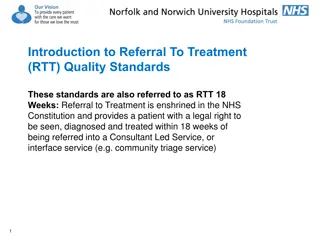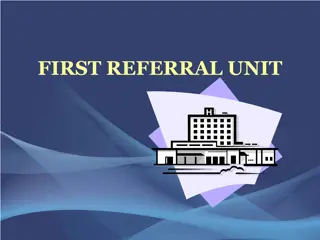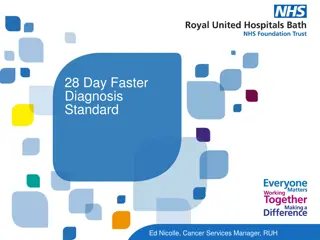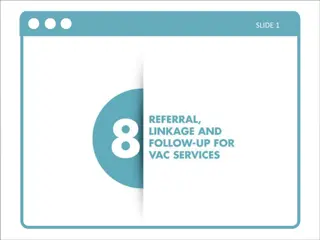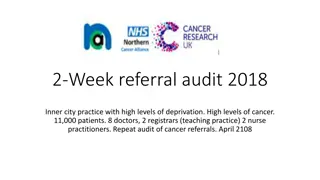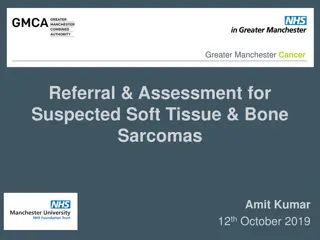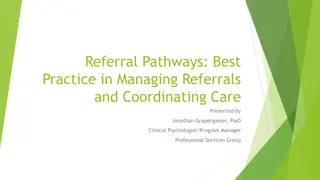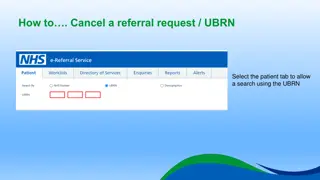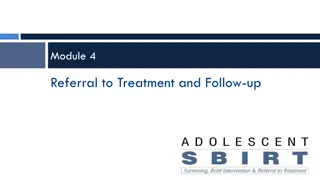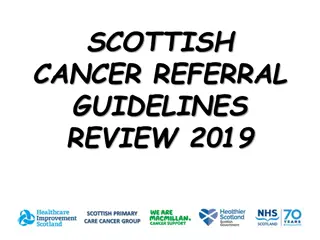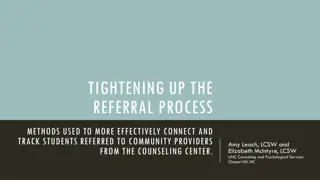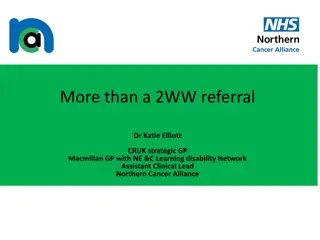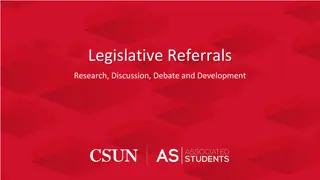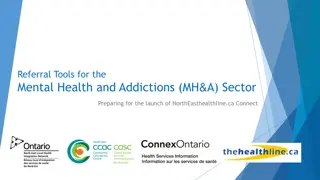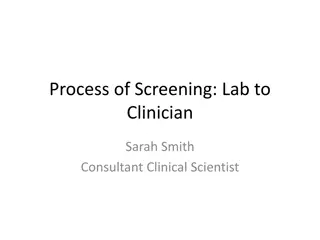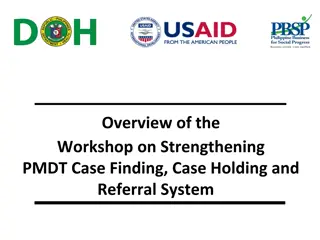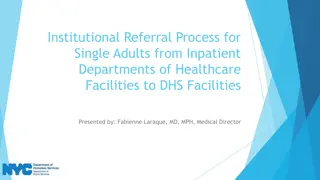Making an Effective Referral
Effective school-based referral for health services and formalizing the process. Learn to connect students to providers based on identified needs.
Download Presentation

Please find below an Image/Link to download the presentation.
The content on the website is provided AS IS for your information and personal use only. It may not be sold, licensed, or shared on other websites without obtaining consent from the author. Download presentation by click this link. If you encounter any issues during the download, it is possible that the publisher has removed the file from their server.
E N D
Presentation Transcript
Making an Effective Referral Learning Burst This resource was supported by Cooperative Agreement Number NU38OT000282, funded by the Healthy Schools Branch -Centers for Disease Control and Prevention. Its contents are solely the responsibility of the American Academy of Pediatrics and do not necessarily representthe official views of the Centers for Disease Control and Prevention of the Department of Health and Human Services.
Learning Outcomes By the end of this learning burst, participants will be able to: Define referral Identify 5 key steps of an effective school-based referral for health services Explore opportunities to formalize the referral process in their institution
Accessing Services That Supports The Whole Child Whole School, Whole Community, Whole Child Health Services: Connect staff, students and community health care providers Access to health services supports: Early intervention Preventative Care Wellness promotion Treatment https://www.cdc.gov/healthyschools/wscc/index.htm
Difference between Referral and Referral System Referral Process of identifying and informing students of preventive health services and treatments through a variety of ways, with the goal of connecting students to providers based on an identified need Referral System Identifies, documents, and tracks resources and referrals to ensure efficiency
Referrals If you ve had a conversation with a student or family, in which they leave with any of the following: Resources and options for available health services (pamphlets, health education, screening services) Information about community providers Appointment to off site clinical service provider or community provider then you have made a referral!
When to Consider Making a Referral? Upon student/family request After identifying a need during a student/family interaction After considering a recommendation from another staff member When a new health service or program is made available that would benefit a student or family
An Effective Referral Process Preparing Tracking Identifying Making Recording
Preparing to Make an Effective Referral Understand what services are needed Explore and connect with new and established partners Help student/family understand why you are making a referral Involve the student/family in the referral process
Identifying the Appropriate Referral Select the appropriate service(s) and provider(s), considering: Individual needs Accessibility of service (eg, cost, service hours, transportation needs, disability) Ensuring family/youth friendly services
What Are Family/Youth-friendly Services? Equitable Acceptable Accessible Family/ youth- friendly services -World Health Organization Appropriate Effective
Why Family/Youth-friendly Services? If services are NOT family/youth-friendly it may lead students to: Leave the provider s office before they get the care they need Not adhere to treatment (eg, taking medicine on time, getting therapies, etc.) Not continue with follow-up care Family/Youth-friendly services support students in showing up for services and getting the care they need.
Making an Effective Referral Assist student/family in making the appointment: Warm referral What to expect Written confirmation of appointment Follow up
Recording and Tracking Referrals How? Documenting in student file Spreadsheet Referral platform What? Dates Outcomes Next steps
Review the steps for making an effective referral Develop a referral process or system Get ready to follow through with a referral!
Parent Resources CDC. Healthy Schools: Family Engagement CDC. Parents for Healthy Schools
Resources Connections for Student Success: Making an Effective Referral. National Association of State Boards of Education: Referrals | State Policy Database National Coalition of STD Directors: Developing a Referral System for Sexual Health Services National Coalition of STD Directors: Making Health Referrals in the Health Resource Room A Step-By-Step Guide National Library of Medicine: Increasing Screening Follow-Up for Vulnerable Children: A Partnership with School Nurses National Library of Medicine: Role of school-based health centers in referral completion National Maternal and Child Oral Health Resource Center: Referral and Follow-Up Substance Abuse and Mental Health Services Administration: School Mental Health Referral Pathways (SMHRP) Toolkit University of Massachusetts Medical School: The Role of School Nurses in the Early Identification, Referral and Provision of Services for Students with Early Signs of Mental, Emotional or Behavioral Disorders: A Dissertation
Additional Questions Contact Agency Contact Person and Title Contact Email Address Contact Phone Number




